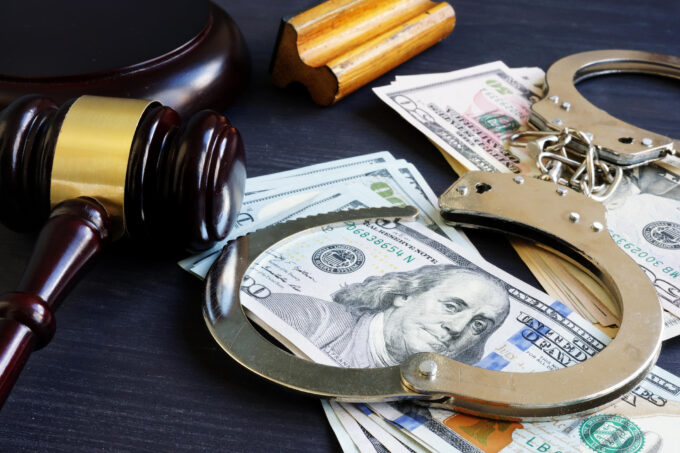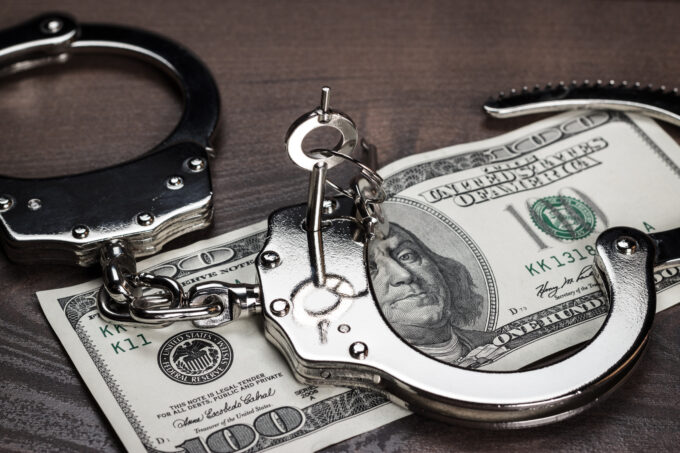Every year in America, more than 10 million people face arrest. While not all of these arrests will end in convictions, a lot of people will face a court appearance. This also means that if you’re arrested you may have to spend time in jail until your trial.
However, depending on the type of crime you have been accused of, you may be able to get out and fast! Posting a personal bail bond means that you will be able to wait for your court date from the comfort of your own home.
So how does this work and how can a bail bondsman help you? If you or a loved one is facing time in jail, read more for the information you’ll need to know.
What Are Personal Bail Bonds?

Source: michiganradio.org
After an arrest, a lot of people will spend a short time in jail while the police decide whether or not to charge you. If they do decide to do this, then your case will have to go to trial.
Before this happens, a judge will review the facts of your case and decide whether or not to offer you the option of bail. This will depend on:
- Your past and present behavior
- Whether or not the judge deems you a flight risk or at risk of re-offending
- Whether your release will endanger others (including potential witnesses)
- How long you have lived in the community and your ties to it
- Your employment history
Bail is another name for a sum of money paid to the court before your release from jail. This is paid back once you have attended all of your court appearances.
Posting bail means that you do not have to wait for your trial from jail. Instead, you can return home until your trial date.
Which States Use Bail Bonds?
The majority of states across the United States use the bail bond system. However, a few have a different system in place. This includes:
- Maine
- Massachusetts
- Wisconsin
- Nebraska
- Oregon
- Kentucky
- Illinois
So if you are arrested in any of these states, a different system will be in place. These systems generally involve making deposits directly to the court rather than using a bail bondsman.
Why Do Personal Bail Bonds Exist?

Source: pexels.com
If a judge decides that it is safe for you to await your trial at home that is great news. However, they request a bail bond to ensure that you will remain in the local area and attend all of your court dates.
Think of this as a sort of financial guarantee that you make to the court. If you do not attend all of your court appearances then the court will keep all of your bail money.
Usually, this is a substantial sum so you won’t want to lose it. This can range from $500 to tens of thousands of dollars for more serious crimes. A judge may set higher bail if they have concerns about your willingness to attend court appearances.
How Can You Pay Bail Bonds?
Once bail has been set, you have two options. You can pay it in full to the court or, like the majority of people, you can get help from a bail bondsman.
When you use a bail bondsman you only have to pay 10% of the bail amount upfront. This goes directly to the bail bondsman.
In return, they will guarantee the full bail amount to the court. This means that you can make bail even if you don’t have a lot of cash to spare.
If you or your loved one attends all of their court dates, the bail bondsman keeps the 10% bail as a fee. However, if the court demands the full bail amount the bondsman will pay this directly. Then they will come to you for repayment of the ball fee.
How Do You Repay a Bail Bondsman?

Source: pexels.com
Before a bail bondsman agrees to guarantee the remaining 90% of a bail bond to the court, they will check that you are able to cover this somehow. This means that you have to offer up collateral against the bail bond.
A bail bondsman accepts several different types of collateral, including:
- Property
- Jewelry, vehicles, and other valuable possessions
- Stocks
- Financial savings or investments
If you do have to forfeit the bail bond then they will pay the court and collect the collateral that has been offered up. If you are unable to offer collateral they will also accept it from friends or family members that are willing to offer something up.
While this sounds like a big risk to take, the only circumstance in which they would need to collect bail is if you missed a court date, so this is entirely in your own control. So why is this service so helpful for a lot of Americans looking to post bail?
Why Are Bail Bond Services Helpful?
Spending time in jail is obviously something that you want to avoid. However, a lot of people are not financially able to post a large lump of bail funds. In that case, bail bondsmen make getting out of jail more accessible.
For example, if bail is $10,000, you only need to come up with $1,000 and collateral in order to get out of jail. While you won’t see this $1,000 again it is arguably a small price to pay for not staying in jail. On top of this, you may be able to return to work in the meantime and make the money back.
If you do have to forfeit your collateral, a lot of bail bondsmen will also be as accommodating as possible. This means accepting repayment in installments if needs be.
It is worth discussing this with a bondsman before you agree to their terms.
Get Help Today

Source: robbicooklaw.com
If you or a loved one has recently been arrested and is struggling to make bail, a bail bondsman could help to get you out of jail until your trial date. So what are you waiting for?






